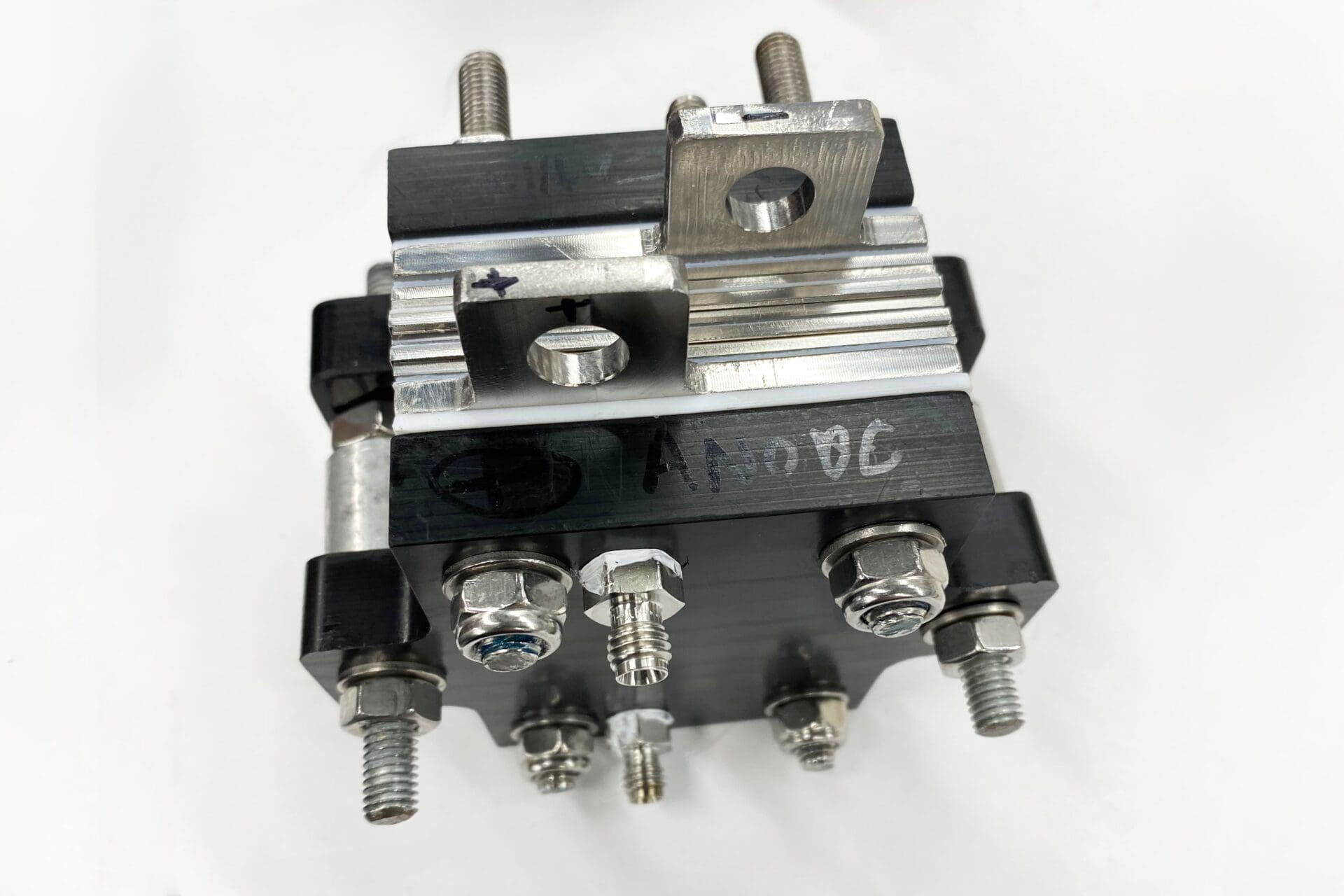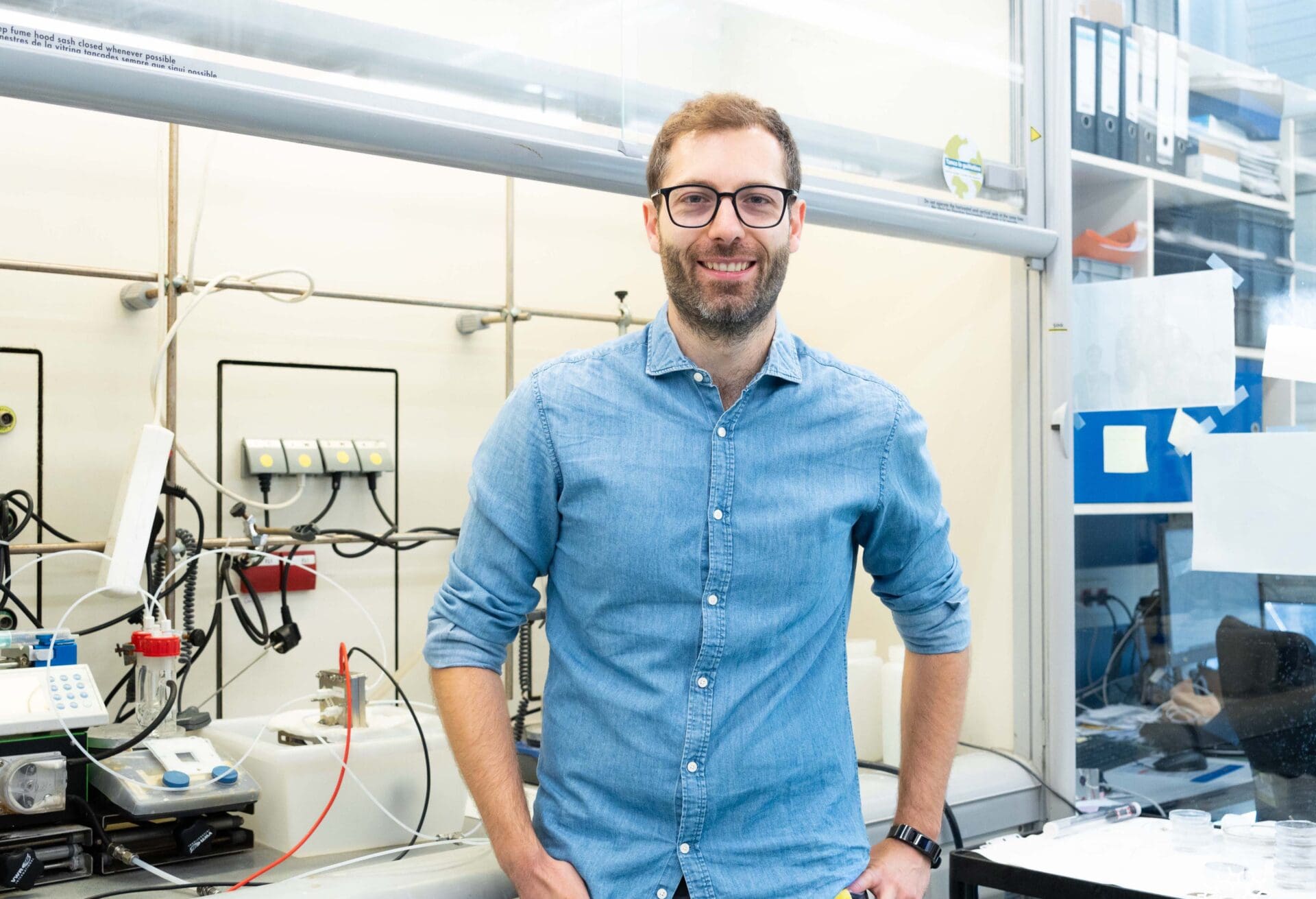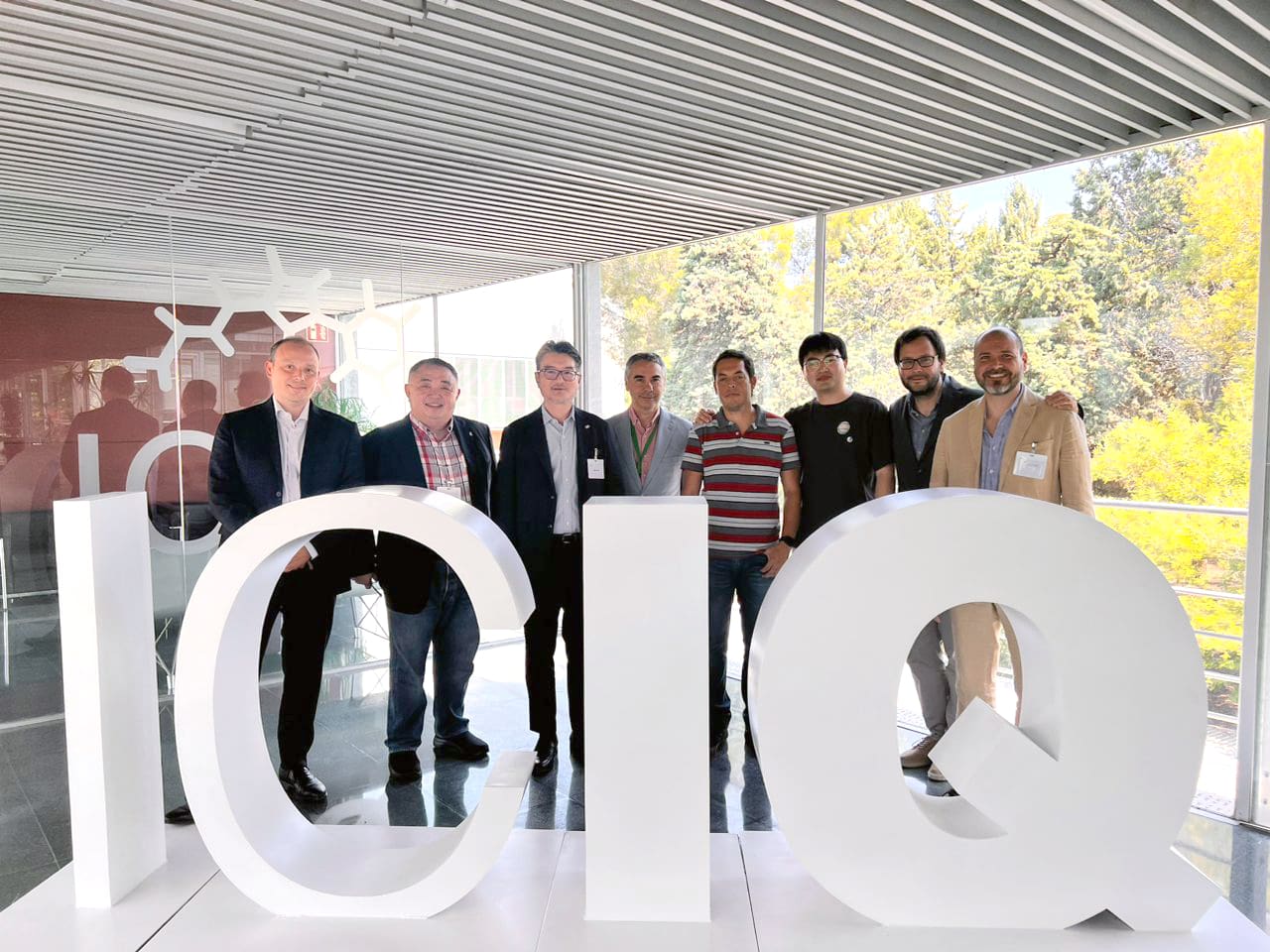CO₂ capture and utilisation: ICIQ commitment to decarbonisation
24th octubre 2024 -
Industria Química magazine highlights ICIQ’s innovative technologies for a sustainable and circular future
The magazine Industria Química has published a report on ICIQ’s innovative work in technologies for capturing, purifying, and reusing CO₂, contributing to decarbonisation and the fight against climate change. One of these technologies, developed by Orchestra Sci, an ICIQ spin-off from the group of Prof. JR Galán-Mascarós, uses metal-organic frameworks (MOFs) to efficiently and cost-effectively separate and purify CO₂ from industrial gases. This versatile technology enables the circularisation of CO₂, offering sustainable solutions to industries such as winemaking and brewing.
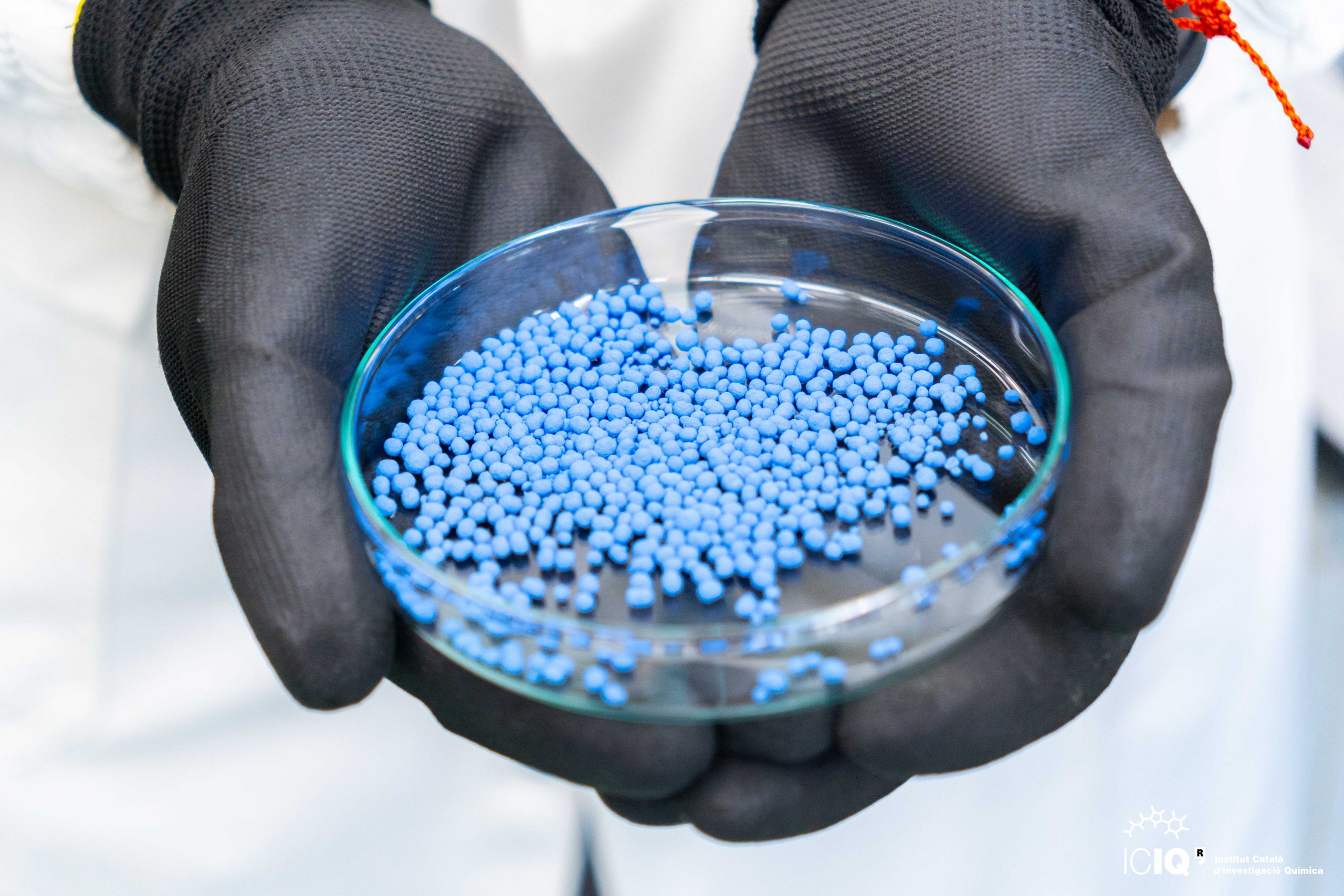
In addition, ICIQ’s research is advancing towards converting CO₂ into biomethane through biogas purification. Tests using the TAMOF-1 absorbent have shown its effectiveness in separating CO₂ and methane, providing a renewable energy source. TAMOF-1 stands out for its scalability and ease of implementation in industrial plants without requiring costly equipment.
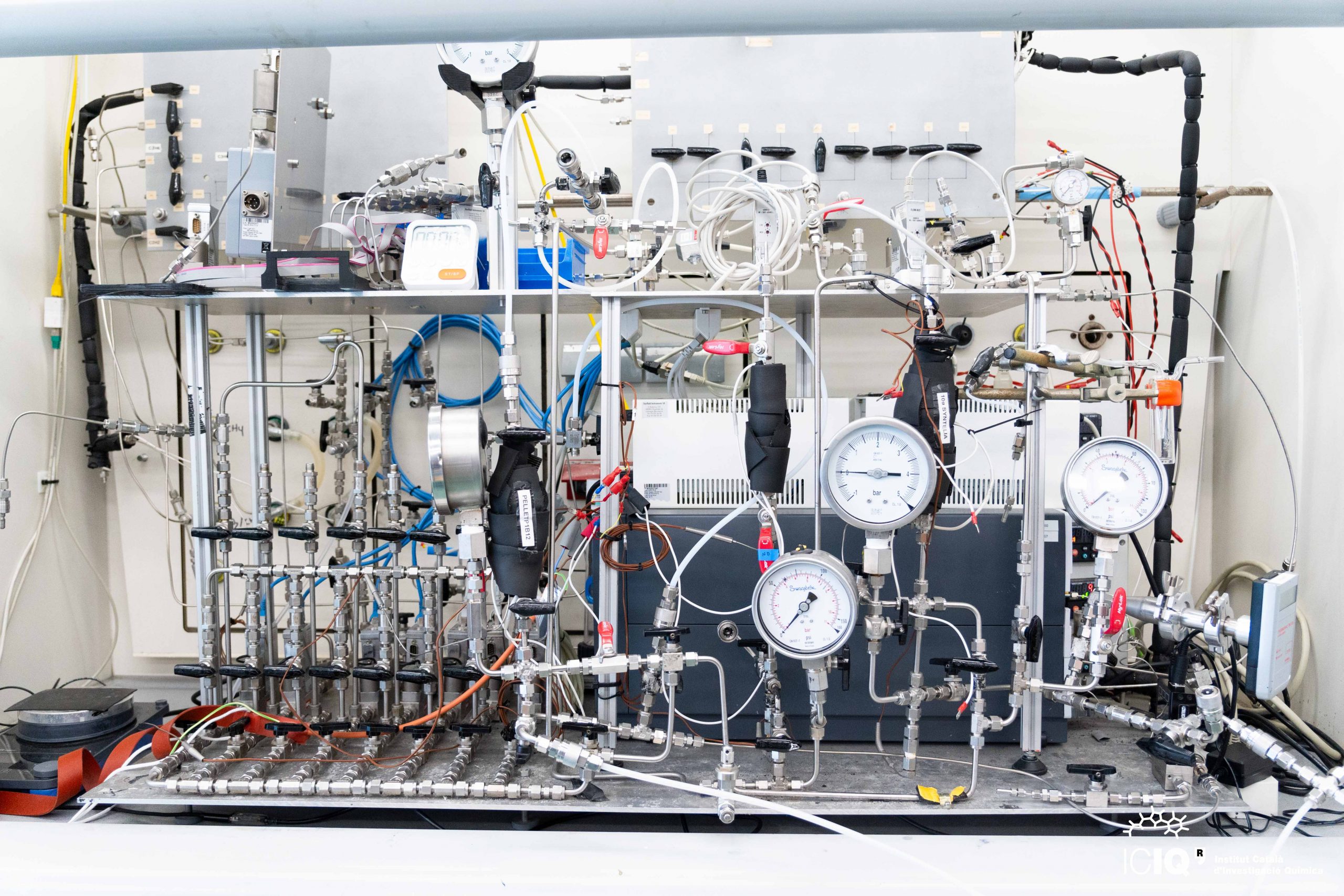
Furthermore, Prof. Arjan W. Kleij’s group is exploring the transformation of CO₂ into sustainable plastics, such as polycarbonates and polyesters, using biological raw materials like limonene. This innovative approach could reduce reliance on petroleum-based products in plastic manufacturing, helping to lower the industry’s carbon footprint.
ICIQ remains committed to developing technologies to mitigate the climate crisis, paving the way for a more circular and sustainable future.
Noticias relacionadas

Creemos un futuro más brillante
Únete a nuestro equipo para trabajar con investigadores de renombre, emprender proyectos innovadores y contribuir a avances científicos significativos.
Únete a nosotros!





 17-12-2024
17-12-2024 